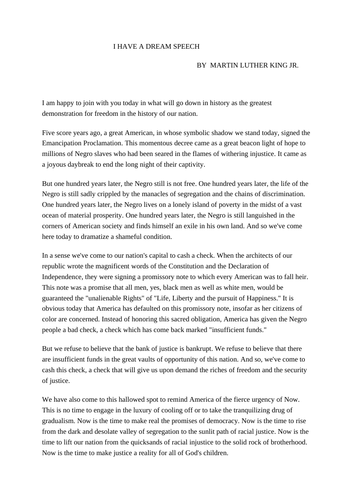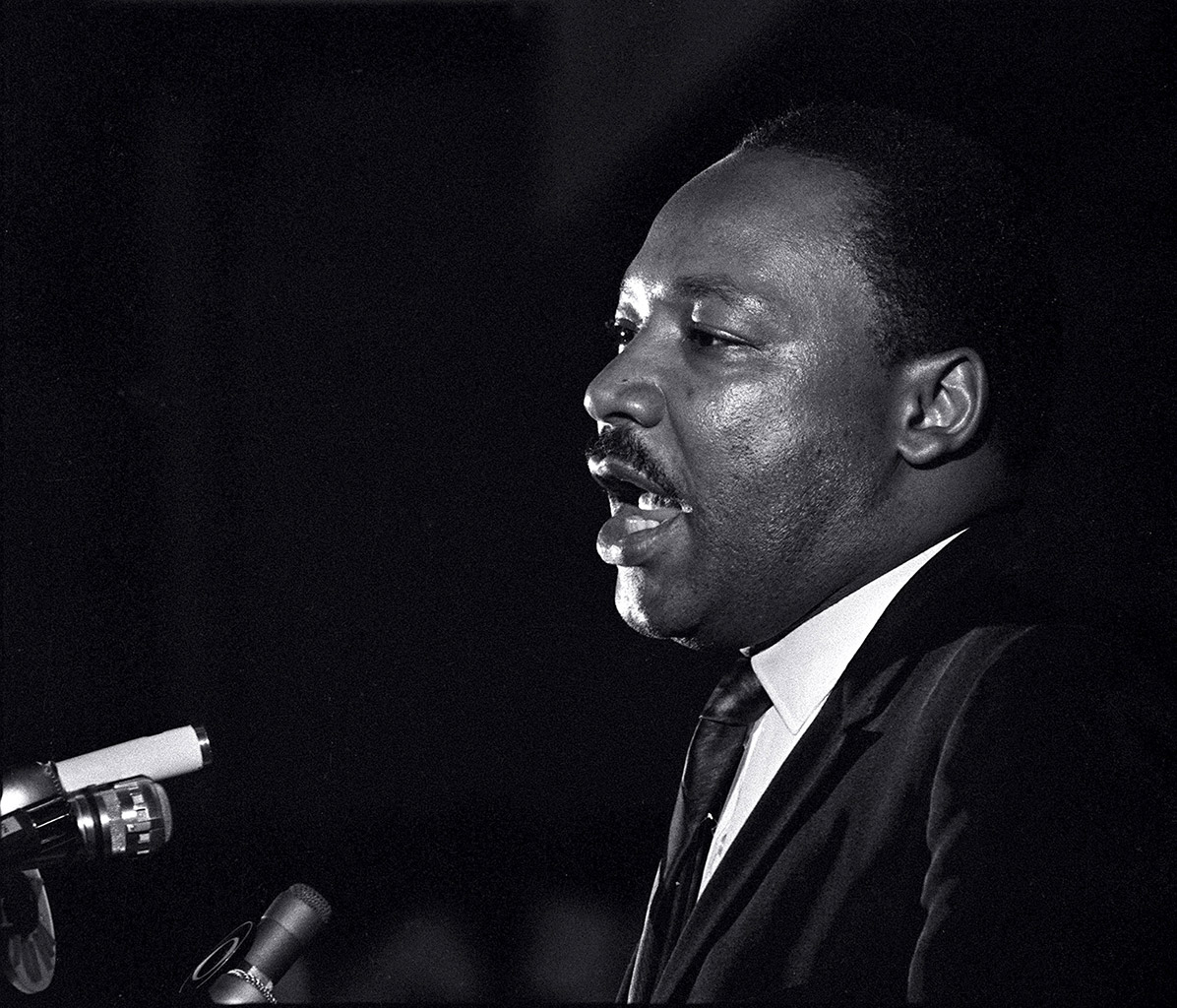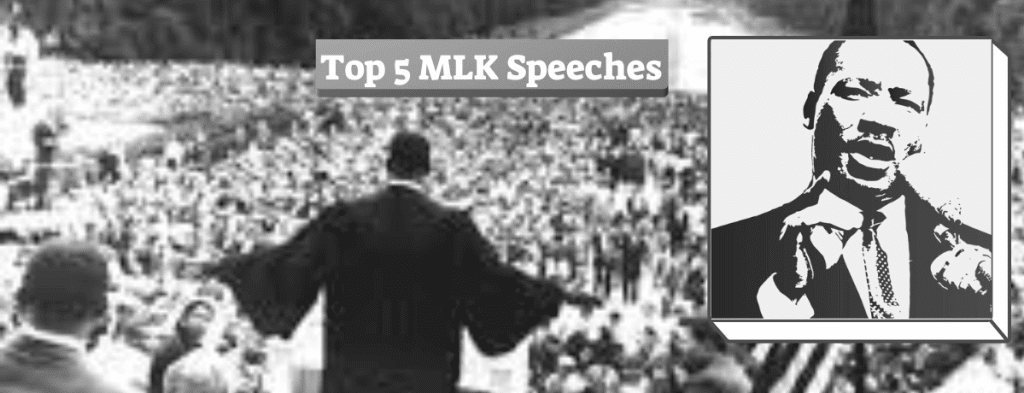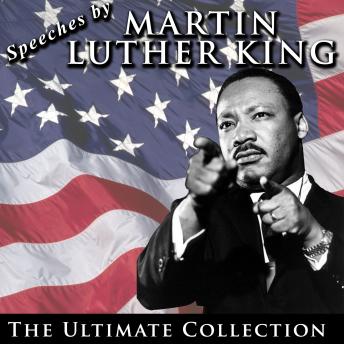Gallery
Photos from events, contest for the best costume, videos from master classes.
 |  |
 |  |
 |  |
 |  |
 |  |
 |  |
By Dr Oliver Tearle (Loughborough University) ‘I Have a Dream’ is one of the greatest speeches in American history. Delivered by Martin Luther King, Jr. (1929-68) in Washington D.C. in 1963, the speech is a powerful rallying cry for racial equality and for a fairer and equal world in which African Americans will be as “I have a dream” — no words are more widely recognized or more often referenced when confronting injustice than those delivered by Rev. Dr. Martin Luther King, Jr. sixty years ago today, August 28th, at the steps of the Lincoln Memorial. Facing the sweltering heat of persecution and state-sanctioned racism, Dr. King and over 200,000 More than 40 years ago, in August 1963, Martin Luther King electrified America with his momentous ‘I Have A Dream’ speech, dramatically delivered from the steps of the Lincoln Memorial. His soaring rhetoric demanding racial justice and an integrated society became a mantra for the black community and is as familiar to subsequent generations For this month’s Annotations, we’ve taken Martin Luther King, Jr.’s iconic “I Have a Dream” speech, and provided scholarly analysis of its groundings and inspirations—the speech’s religious, political, historical and cultural underpinnings are wide-ranging and have been read as jeremiad, call to action, and literature. Speech Critique – I Have a Dream – Martin Luther King Jr. Much of the greatness of this speech is tied to its historical context, a topic which goes beyond the scope of this article. Instead, I’ll focus on five key lessons in speechwriting that we can extract from Martin Luther King’s most famous speech. This paper investigates the speech of Martin Luther King (Jr.) titled: “I Have a Dream”, presented in 1963 at the Lincoln Memorial. This speech is selected for use because it involves a speaker and an audience who belong to a particular speech community. The speech is about the failed promises by the Americans whose dream advocate Martin Luther King Jr. gave his speech on August 28, 1963, during the Civil Rights March in Washington, DC. Standing in front of the audience who gathered at the Lincoln Memorial in Washington, King spoke calmly to avoid provoking any kind of public disobedience that was common within the context of the Civil Rights Movement. Today is the 59 th anniversary of Dr. Martin Luther King Jr.’s immortal speech. We’re still learning from it. Aside from its enormous place in American and world history, it is an oratorical However, Martin Luther king left a legacy and is remembered on Martin Luther King Day every year. Significance of the Speech in the world today In the course of delivering his speech, Martin Luther King said, “I am happy to join with you today in what will go down in history as the greatest demonstration for freedom in the history of our August 28, 1963. Martin Luther King’s famous “I Have a Dream” speech, delivered at the 28 August 1963 March on Washington for Jobs and Freedom, synthesized portions of his previous sermons and speeches, with selected statements by other prominent public figures. Full text to the "I Have A Dream" speech by Dr. Martin Luther King Junior I am happy to join with you today in what will go down in history as the greatest demonstration for freedom in the history of our nation. Five score years ago, a great American, in whose symbolic shadow we stand today, signed the Emancipation Proclamation. Tomorrow, Jan. 20, is the Martin Luther King Jr. National Holiday. In August 2020 a group of Islanders came together to discuss Martin Luther King’s immortal speech. Here’s a report on that gathering. On the 57th anniversary of one of the most stirring and influential speeches in history, five Islanders gathered to discuss what the Although Martin Luther King Jr. is the author of this story, the way in which a time in history was broken down into shorter, understandable elements, is remarkable. This story highlights Dr. Martin Luther King’s speech delivered in August in 1963, and selects certain quotes from his speech that were powerful and inspiring. A powerful collection of the most essential speeches from famed social activist and key civil rights figure Dr. Martin Luther King, Jr. This companion volume to A Knock At Midnight: Inspiration from the Great Sermons of Rev. Martin Luther King, Jr. includes the text of his most well-known oration, "I Have a Dream", his acceptance speech for the Nobel Peace Prize, and Beyond Vietnam, a powerful Martin Luther King's I Have A Dream speech text and audio . Martin Luther King, Jr. I Have a Dream. delivered 28 August 1963, at the Lincoln Memorial, Washington D.C. Civil rights leader Martin Luther King Jr. waves to supporters on August 28, 1963, on the Mall in Washington. His speech spoke of Black and White people sitting together "at the table of brotherhood." - Rev. Dr. Martin Luther King, Jr. (LL.D. '57) The Rev. Dr. Martin Luther King, Jr. visited and spoke at Howard several times, but it could not have been more fitting that Dr. Martin Luther King's last speech at Howard was to deliver the Gandhi Memorial Lecture on November 9, 1966, just a few weeks before the university's 100th birthday. Martin Luther King, Jr., was a visionary leader and advocate for equality who spearheaded the civil rights movement in America through nonviolent protests, inspiring lasting change and leaving an enduring legacy. Please contact Intellectual Properties Management (IPM), the exclusive licensor of the Estate of Martin Luther King, Jr., Inc. at licensing@i-p-m.com or 404 526-8968. Screenshots are considered by the King Estate a violation of this notice. The Institute cannot give permission to use or reproduce any of the writings, statements, or images of Martin Luther King, Jr. Please contact Intellectual Properties Management (IPM), the exclusive licensor of the Estate of Martin Luther King, Jr., Inc. at licensing@i-p-m.com or 404 526-8968.
Articles and news, personal stories, interviews with experts.
Photos from events, contest for the best costume, videos from master classes.
 |  |
 |  |
 |  |
 |  |
 |  |
 |  |